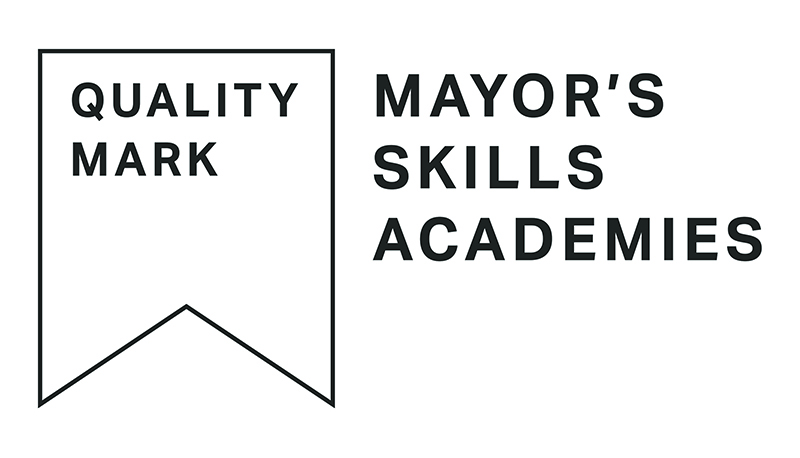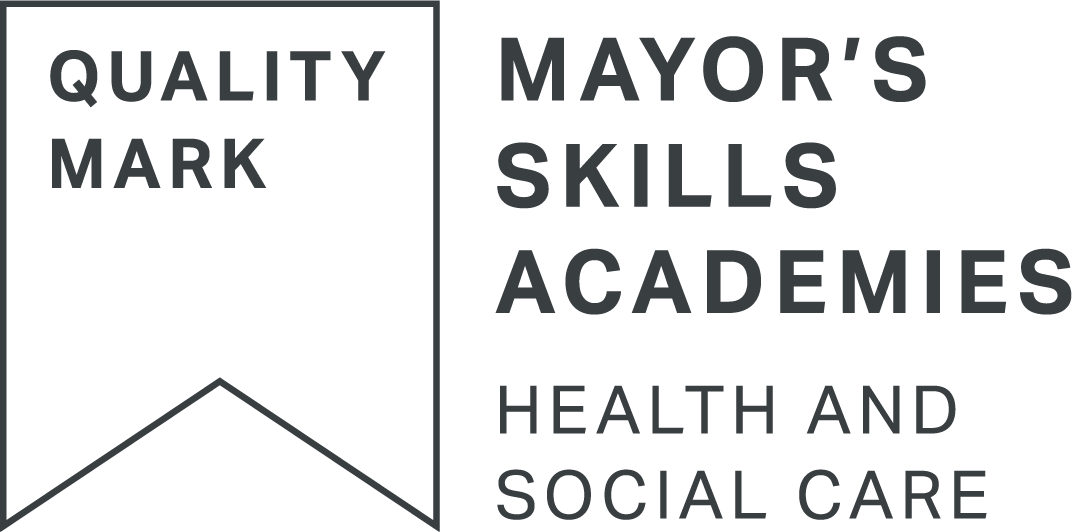-
Laboratory Technician Level 3
Entry requirements
Individual employers will set the selection criteria for their Apprenticeships. Most candidates will have Level 2 Maths and English, ideally as part of 5 GCSE A-C grades or equivalent, or gain these whilst on programme. Other relevant or prior experience may also be considered as an alternative.
Qualification outcomes
Level 3 Diploma in Laboratory Technician
Job Role
Laboratory Assistant, Laboratory Technician
Overview of role
his occupation is found in a wide range of organisations, including but not exclusively, chemical, primary and secondary pharmaceutical, biotechnology, formulated products, nuclear companies; and analytical science services, dental laboratories and educational establishments. The broad purpose of the occupation is working at the forefront of technology to carry out both routine and one-off laboratory testing (and manufacturing where relevant) and perform a variety of technical support functions across the organisation. In their daily work, an employee in this occupation interacts with the laboratory manager and colleagues, internal departments such as manufacturing, procurement and quality, internal customers such as medical staff, teaching staff and students, external suppliers and customers such as service engineers, delivery drivers, regulatory bodies and inspection teams e.g. HSE. An employee in this occupation will be responsible for proactively finding solutions to problems and identifying areas for improving the business. Laboratory technicians are expected to work both individually and as part of a laboratory team. They are able to work with minimum supervision, taking responsibility for the quality and accuracy of their own work. In
any context working safely and ethically is paramount and many companies operate under highly regulated conditions. Laboratory technicians therefore follow quality procedures to meet the requirements of quality standards relevant to their work. It is not a requirement, either to practise in this occupation or as part of this apprenticeship, for apprentices to achieve additional qualifications (other than the usual English and maths requirements for an apprenticeship at this level) or professional recognition. However, this apprenticeship standard has been carefully designed with some of the requirements of certain relevant professional bodies in mind. Apprentices and employers should speak to the professional bodies relevant to the industry or sector within which they are working to ascertain the additional requirements that must be met for professional recognition by these organisations. Recognition by those organisations will be dependent on the acquisition of learning as defined by them.
Progression
With experience, learners could progress to team manager or lab supervisor, or specialise in complex analysis work. With a degree and experience they could also move into a research technician role.
-
Lead Adult Care Worker Level 3
Entry requirements
Individual employers will set the selection criteria for their Apprenticeships. Most candidates will have Level 2 Maths and English, ideally as part of 5 GCSE A-C grades or equivalent. Other relevant or prior experience may also be considered as an alternative. Those without Maths and English Level 2 will also need to attempt these exams.
Qualification outcomes
Level 3 Diploma in Adult Care
Job Role
Care Officer, Care Supervisor, Senior Care Worker, Supervising Care Worker, Senior Support Worker, Relief Team Leader, Social Work Assistant, Social Services Officer, Outreach Development Worker, Community Support Worker, Community Outreach Worker, Community Development Worker, Family Support Worker or Personal Assistant.
Overview of role
Lead Adult Care Workers are the frontline staff who help adults with care and support needs to achieve their personal goals and live as independently and safely as possible, enabling them to have control and choice in their lives. In addition, Lead Adult Care Workers have responsibility for providing supervision, frontline leadership, guidance and direction for others, or working autonomously, exercising judgement and accountability.
As a Lead Adult Care Worker you will make a positive difference to someone’s life when they are faced with physical, practical, social, emotional or intellectual challenges. You will be expected to exercise judgement and take appropriate action to support individuals to maintain their independence, dignity and control. By providing leadership, guidance and direction at the frontline of care delivery you will be instrumental in improving the health and wellbeing of those receiving care and support. Lead Adult Care Workers will in some circumstances have delegated responsibility for the standard of care provided and may supervise the work of other care workers. This exercising of autonomy and
accountability means leading and supporting others to comply with expected standards and behaviours.
Lead Adult Care Workers may work in residential or nursing homes, domiciliary care, day centres or some clinical healthcare settings. As well as covering Lead Adult Care Workers this standard also covers Lead Personal Assistants who can work at this senior level but they may only work directly for one individual who needs support and/or care services, usually within their own home.
Progression
Learners may choose to progress onto the Level 4 or 5 apprenticeship or even onto a Leadership & Management qualification in Adult Care.
Industry-specific requirements
Undertake the Enhanced Disclosure and Barring Service process and provide the result prior to starting.
The individual must meet the 15 standards as set out in the Care Certificate. The Care Quality Commission expect that providers that employ healthcare assistants and social care support workers follow these standards to make sure new staff are supported, skilled and assessed as competent to carry out their roles.
-
Healthcare Support Worker Level 2
Entry requirements
Individual employers will set the selection criteria for their Apprenticeships. Most candidates will have Level 1 Maths and English, ideally as part of 5 GCSE A-C grades or equivalent, or gain these whilst on programme. Other relevant or prior experience may also be considered as an alternative. Those without Maths and English Level 2 will also need to attempt these exams.
Qualification outcomes
Level 2 Diploma in Healthcare Support
Job Role
Healthcare support worker, Dietic assistant, Maternity support worker, Healthcare assistant, Occupational therapy support worker, Orthotic technician, Podiatry assistant, Physiotherapy assistants, support workers, Prosthetic technician, Radiography assistants and imaging support workers, Speech and language therapy assistant.
Overview of role
Healthcare support workers (HCSWs) work as part of a team providing high quality and compassionate care to individuals(1). You will carry out well-defined routine clinical duties(2) like monitoring an individual’s conditions (by checking things like blood pressure, temperature or weight), checking on their overall progress, comfort and wellbeing.
Depending on where you work, you may also help them to eat, drink, wash, dress or go to the toilet. You will prepare individuals for healthcare activities carried out by other members of the healthcare team, looking after them before, during and/or after those activities in line with their care plan. You will also carry out non-clinical duties and, depending on where you work, this could include things like keeping records, making beds, tidying up your work area, returning or cleaning the equipment used during a clinical activity. You will be able to address straightforward problems in your day to day work, reporting concerns and changes to the appropriate person in a timely manner. HCSWs work in a range of healthcare settings(3) and your team may include workers from both health and social care. You will report to a registered healthcare practitioner who will directly or indirectly supervise your work.
Progression
Upon completion students may choose to study an advanced or higher apprenticeship, which will help to progress in a variety of roles within the heath sector, such as; Personal Assistant, Support and Outreach Worker or an Adult Care Worker.
Industry-specific requirements
Undertake the Disclosure and Barring Service process and provide the results to the employer.
-
Leader in Adult Care Level 5
Entry requirements
Individual employers will set the selection criteria for their Apprenticeships. Most candidates will have Level 2 Maths and English, ideally as part of 5 GCSE A-C grades or equivalent, or gain these whilst on programme. Other relevant or prior experience may also be considered as an alternative.
Qualification outcomes
Level 5 Diploma in Leadership and Management for Adult Care.
Job Role
Registered Assistant, Deputy, Unit or Service Manager.
Overview of role
The Leader in Adult Care will guide and inspire teams to make positive differences to someone’s life when they are faced with physical, practical, social, emotional, psychological or intellectual challenges. They will be a leader of the care team and will develop and implement a values-based culture at a service or unit level. They may be responsible for business development, financial control, organisational resilience and continuity as well as for managing risk and leading on organisational change.
A Leader in Adult Care has responsibility for managing community or residential based services. This role has a large element of leadership, whether with other care workers and networks or in leading the service itself. A successful apprentice will have met all the requirements. They have a responsibility to ensure the service is safe, effective, caring, responsive to people’s needs and well-led. They may be a registered manager of a service, unit, deputy or assistant manager. They will be responsible for ensuring regulatory compliance of the care given and the values and training of staff with established standards and regulations.
These are the personal attributes and behaviours expected of all Leaders in Adult Care carrying out their roles:
· Care – is caring consistently and enough about individuals to make a positive difference to their lives
· Compassion – is delivering care and support with kindness, consideration, dignity, empathy and respect
· Courage – is doing the right thing for people and speaking up if the individual they support is at risk
· Communication – good communication is central to successful caring relationships and effective team working
· Competence – is applying knowledge and skills to provide high quality care and support
· Commitment – to improving the experience of people who need care and support ensuring it is person centred
Leaders in Adult Care may work in residential or nursing homes, domiciliary care, community day centres, a person’s own home or some clinical healthcare settings. The role of Leader in Adult Care in this standard also covers Personal Assistants who operate in a management role but they may only work directly for one individual who needs support and/or care services.
Progression
Learners can progress to a degree in a related discipline.
Industry-specific requirements
Undertake the Disclosure and Barring Service process and provide the results to the employer.
-
Senior Healthcare Support Worker Level 3
Entry requirements
Individual employers will set the selection criteria for their Apprenticeships. Most candidates will have Level 2 Maths and English, ideally as part of 5 GCSE A-C grades or equivalent, or gain these whilst on programme. Other relevant or prior experience may also be considered as an alternative.
Qualification outcomes
Level 3 Diploma in Healthcare Support
Job Role
Healthcare support worker, Dietic assistant, Maternity support worker, Healthcare assistant, Occupational therapy support worker, Orthotic technician, Podiatry assistant, Physiotherapy assistants, support workers, Prosthetic technician, Radiography assistants and imaging support workers, Speech and language therapy assistant
Overview of role
Senior Healthcare Support Workers help registered practitioners deliver healthcare services to people (1). As an experienced support worker, you carry out a range of clinical and non-clinical healthcare or therapeutic tasks, under the direct or indirect supervision of the registered healthcare practitioner. You provide high quality, compassionate healthcare, following standards, policies or protocols and always acting within the limits of your competence. You may work in a range of services eg hospital, community, health or day case unit, birth centre or midwifery led unit, someone’s home, operating theatre, nursing or care home, assessment centre, hospice, school, prison, GP surgery, charity or voluntary organisation; working in partnership with individuals, families, carers and other service providers.
Progression
After a period of working and gaining experience, you may be able to work towards an Assistant Practitioner or Nursing Associate post or, providing you meet the entry requirements, apply to university to become a registered healthcare practitioner.
Industry-specific requirements
Undertake the Disclosure and Barring Service process and provide the results to the employer.
-
Adult Care Worker Level 2
Entry requirements
Individual employers will set the selection criteria for their Apprenticeships. Most candidates will have Level 1 Maths and English, ideally as part of 5 GCSE A-C grades or equivalent, or gain these whilst on programme. Other relevant or prior experience may also be considered as an alternative. Those without Maths and English Level 2 will also need to attempt these exams.
Qualification outcomes
Level 2 Diploma in Care.
Job Role
Care Assistant, Care Worker, Support Worker, Personal Assistant, Relief Team Worker, Support Worker – Supported Living, Key Worker in Residential Settings, Key Worker in Domiciliary Services, Key Worker in Day Services, Home Care Support Worker, Substance Misuse Worker, Learning Disability Support Worker, Mental Health Support Worker, Mental Health Outreach Worker and Re-enablement Worker.
Overview of role
To work in care is to make a positive difference to someone’s life when they are faced with physical, practical, social, emotional or intellectual challenges. Adult Care Workers need to have the right values and behaviours developing competences and skills to provide high quality compassionate care and support. They are the frontline staff who help adults with care and support needs to achieve their personal goals and live as independently and safely as possible, enabling them to have control and choice in their lives which is at the heart of person-centred care. Job roles are varied and determined by and relevant to the type of the service being provided and the person supported. Adult Care Workers may work in residential or nursing homes, domiciliary care, day centres, a person’s own home or some clinical healthcare settings.
Personal assistants do the same job as an Adult Care Worker and work directly for one individual usually within their own home. Working with people, feeling passionate about supporting and enabling them to live a more independent and fulfilling life is a rewarding and worthwhile job that provides excellent career opportunities.
These are the personal attributes and behaviours expected of all Adult Care Workers carrying out their roles
· Care – is caring consistently and enough about individuals to make a positive difference to their lives
· Compassion – is delivering care and support with kindness, consideration, dignity and respect
· Courage – is doing the right thing for people and speaking up if the individual they support is at risk
· Communication – good communication is central to successful caring relationships and effective team working
· Competence – is applying knowledge and skills to provide high quality care and support
· Commitment – to improving the experience of people who need care and support ensuring it is person centred
Progression
This apprenticeship provides an ideal entry into the occupation and supports progression within the sector.
Industry-specific requirements
Undertake the Enhanced Disclosure and Barring Service process and provide the result prior to starting.
The individual must meet the 15 standards as set out in the Care Certificate. The Care Quality Commission expect that providers that employ healthcare assistants and social care support workers follow these standards to make sure new staff are supported, skilled and assessed as competent to carry out their roles.
-
Clinical Healthcare Support Worker Level 2
Entry requirements
Individual employers will set the selection criteria for their Apprenticeships. Most candidates will have Level 1 Maths and English, ideally as part of 5 GCSE A-C grades or equivalent, or gain these whilst on programme. Other relevant or prior experience may also be considered as an alternative. Those without Maths and English Level 2 will also need to attempt these exams.
Qualification outcomes
Level 2 in Clinical Healthcare Support
Job Role
Clinical Healthcare Support Worker, Healthcare Assistant
Overview of role
Healthcare support workers (HCSWs) work as part of a team providing high quality and compassionate care to individuals(1). You will carry out well-defined routine clinical duties(2) like monitoring an individual’s conditions (by checking things like blood pressure, temperature or weight), checking on their overall progress, comfort and wellbeing.
Depending on where you work, you may also help them to eat, drink, wash, dress or go to the toilet. You will prepare individuals for healthcare activities carried out by other members of the healthcare team, looking after them before, during and/or after those activities in line with their care plan. You will also carry out non-clinical duties and, depending on where you work, this could include things like keeping records, making beds, tidying up your work area, returning or cleaning the equipment used during a clinical activity. You will be able to address straightforward problems in your day to day work, reporting concerns and changes to the appropriate person in a timely manner. HCSWs work in a range of healthcare settings(3) and your team may include workers from both health and social care. You will report to a registered healthcare practitioner who will directly or indirectly supervise your work.
You will be able to work effectively as part of a team. You will always act within the limits of your competence, knowing who to ask for help and support if you are not sure. You will work within agreed ways of working, following the relevant standards, policies and protocols used in your workplace including the Code of Conduct for Healthcare Support Workers and Adult Social Care Workers in England. During the first part of this apprenticeship you will be supported to achieve the Care Certificate(4) which forms part of your
induction and covers the fundamental skills needed to provide quality care.
Progression
Progress to the Level 3 in Clinical Healthcare Support or job roles such as an Assistant Dietician, Maternity Support Worker, Medical Laboratory Assistant or Physiotherapy Assistant.
Industry-specific requirements
Undertake the Disclosure and Barring Service process and provide the results to the employer














































